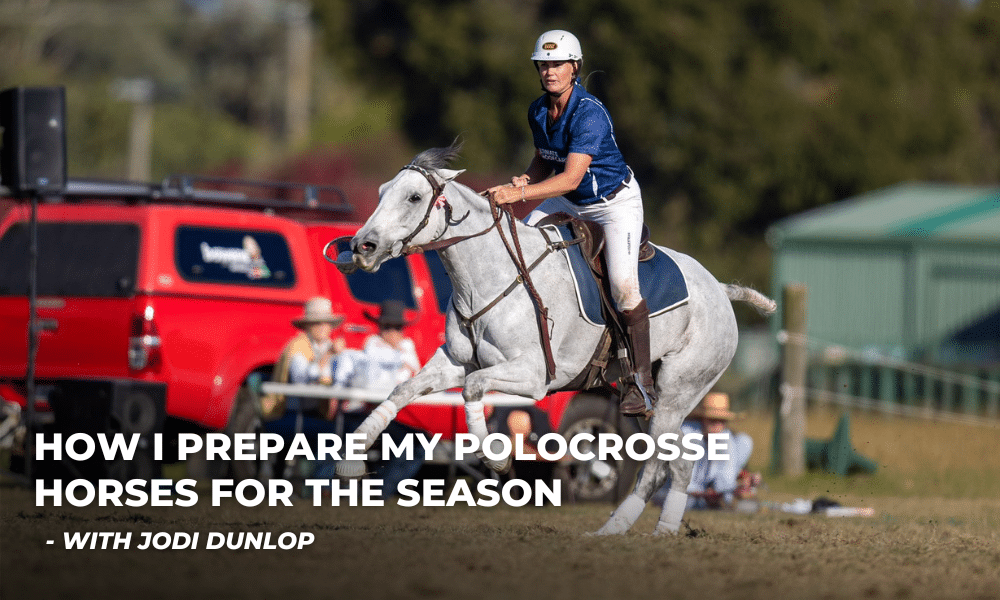
15 Aug How I Prepare My Polocrosse Horses for the Season
With Jodi Dunlop
Sponsored rider Jodi Dunlop is an accomplished Polocrosse player, having played for Western Australia and represented Australia. Jodi comes from a family of polocrosse players and has a successful team of horses. In this blog post, Jodi talks about her method for preparing her polocrosse horses for the season after a spell.
Every person will have a different view and method on bringing their horses back in to work after a long spell so there is typically no ‘right or wrong’ as it is up to the individual to prepare their own horses and most will have a system they have learnt by trial and error or following family tradition. So this is simply the way I prepare that has worked very well for me and my horses during my Polocrosse career.
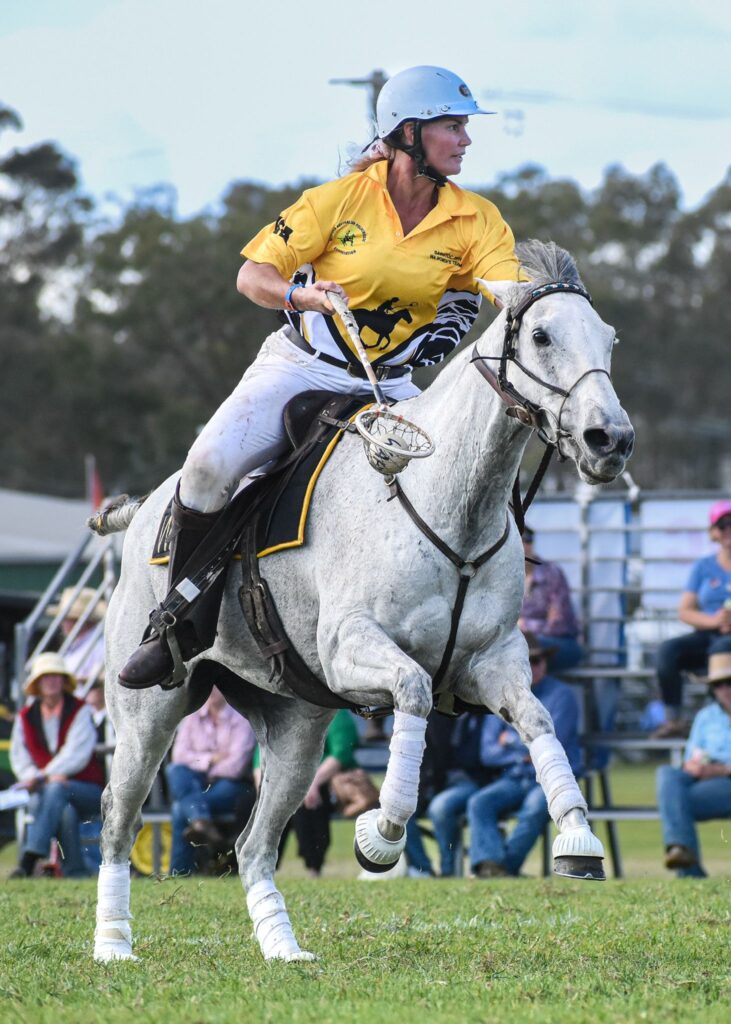
From spell to carnival..
Typically I have an 8 week preparation leading in to the first carnival. The horses will not be at their absolute peak fitness by then but this is the timeframe I allow knowing they will be body, joint, ligament and lung fit enough to complete their first Carnival safely and in good condition.
Week 1-2:
Mostly slow jog up work, mixed with short sets of mobility and movement.
Week 3-4:
Introduction of a more working trot and canter conditioning along with short bursts of game style movements with schooling/education/development of each horses weaker areas.
Week 5-6:
Introduction of short sprint work, game simulation at varying speeds and intensity and likely to start at Club Trainings which includes controlled Practice Chukkas
Week 7-8:
Introduction of full chukkas including contact and high intensity movements, short to long sprints.
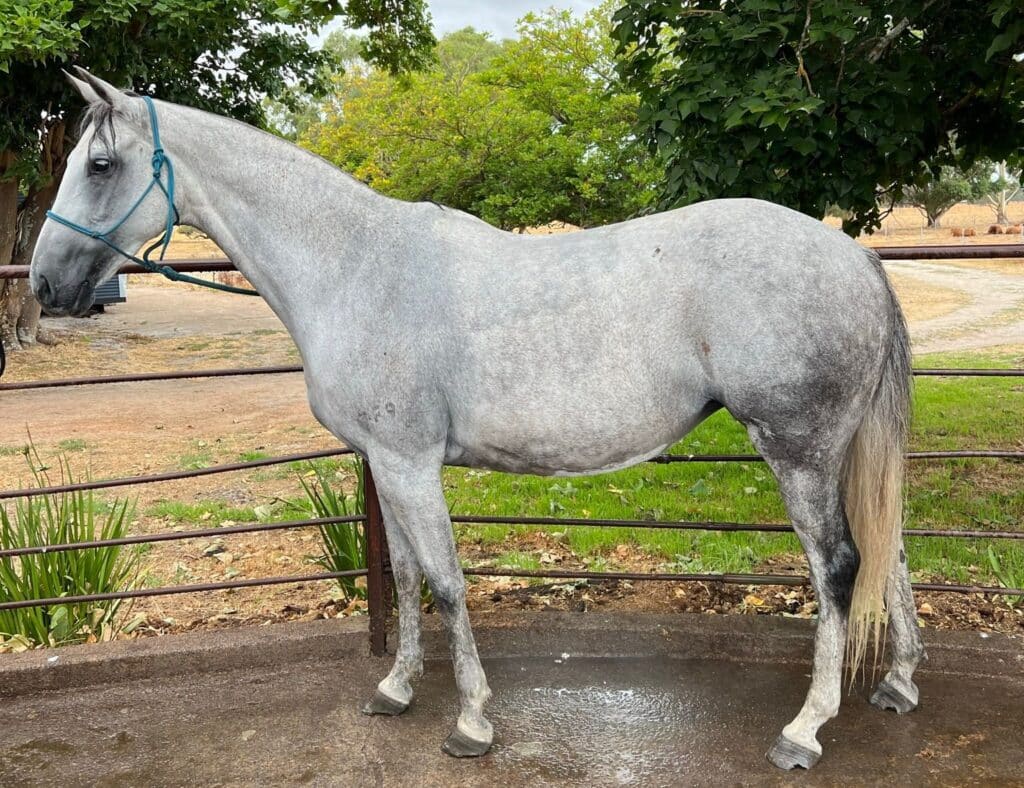
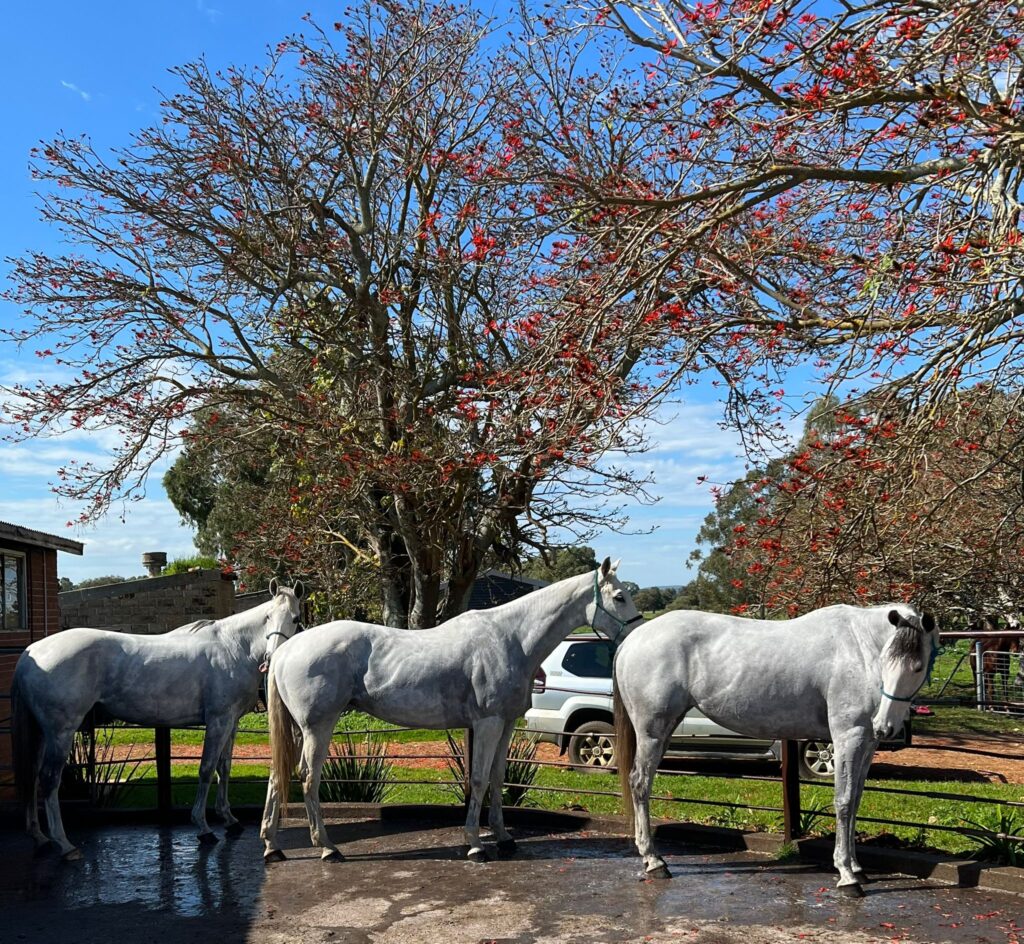
Week 7 Program
I’m currently at week 7, so here is what my schedule looks like for this week:
- Sunday: Full club practice
- Monday: Light working trot out 5kms (light sweat and puff for both the ridden and led horses) – full body check over after practice.
- Tuesday: Day off (rain forecast)
- Wednesday: Racquet and skill work
- Thursday: Canter and sprints
- Friday: Slower movement work without racquet – focus on development of the issues picked up at practice
- Saturday: Practice chukkas at home
- Sunday: Full club practice
Scheduling and Rest Days:
I aim to have the horses worked 5-6 days a week during this 8 Week Prep and schedule any rest days around the weather. So they don’t have a set day off, just keep things flexible as life and weather can make things tricky! I also treat each horse as an individual, this is not a one size fits all black and white program, my youngest horse is 7 and the oldest is 12 so they come along at varying speeds and I adjust conditioning distances or sprint work to cater to that specific horse.
Keep it fresh!
I do try to keep the horses minds fresh as well as their bodies so some of their conditioning work we will take them to different places so they get out and about which tends to automatically increases their heart rate!
Reintroducing their hard feed:
Along with the fitness work is also the reintroduction of hard feed which is gradually increased during the first 6 weeks. They are typically on their full feed load by the end of Week 6 which allows those last couple of weeks where training has intensified to be at 100% of their performance ration intake prior to the carnival.
Additional Checks:
I try to ensure their dental treatment and a full clip is done by Week 4 and they are shod a couple of weeks before the first Carnival.
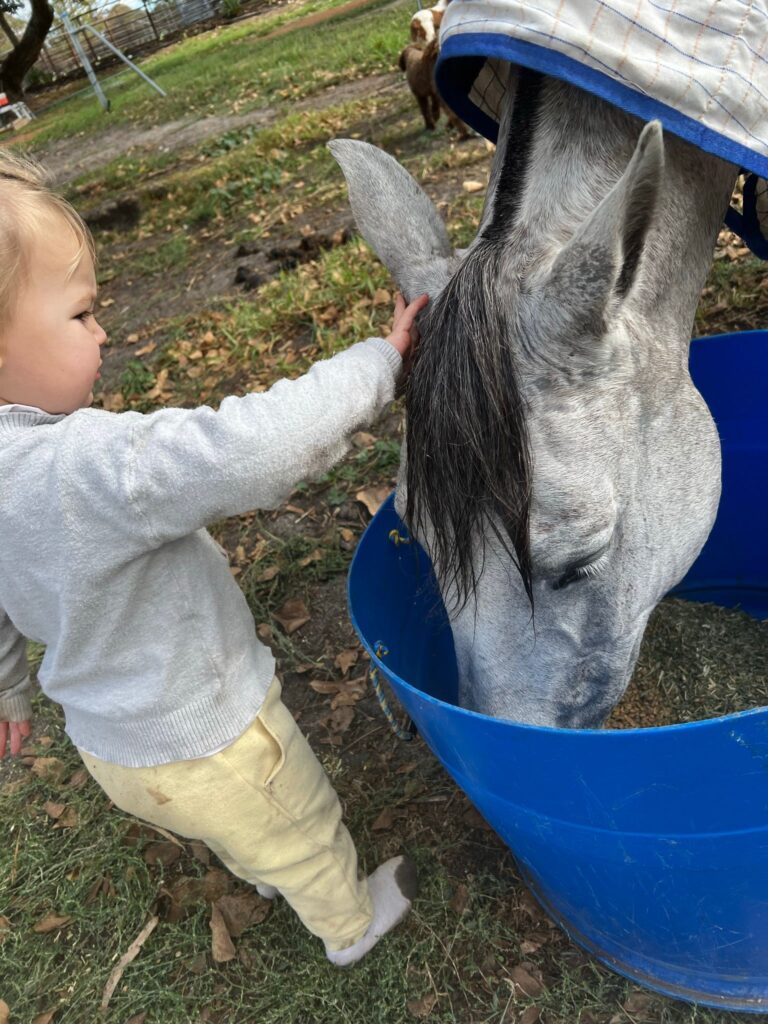
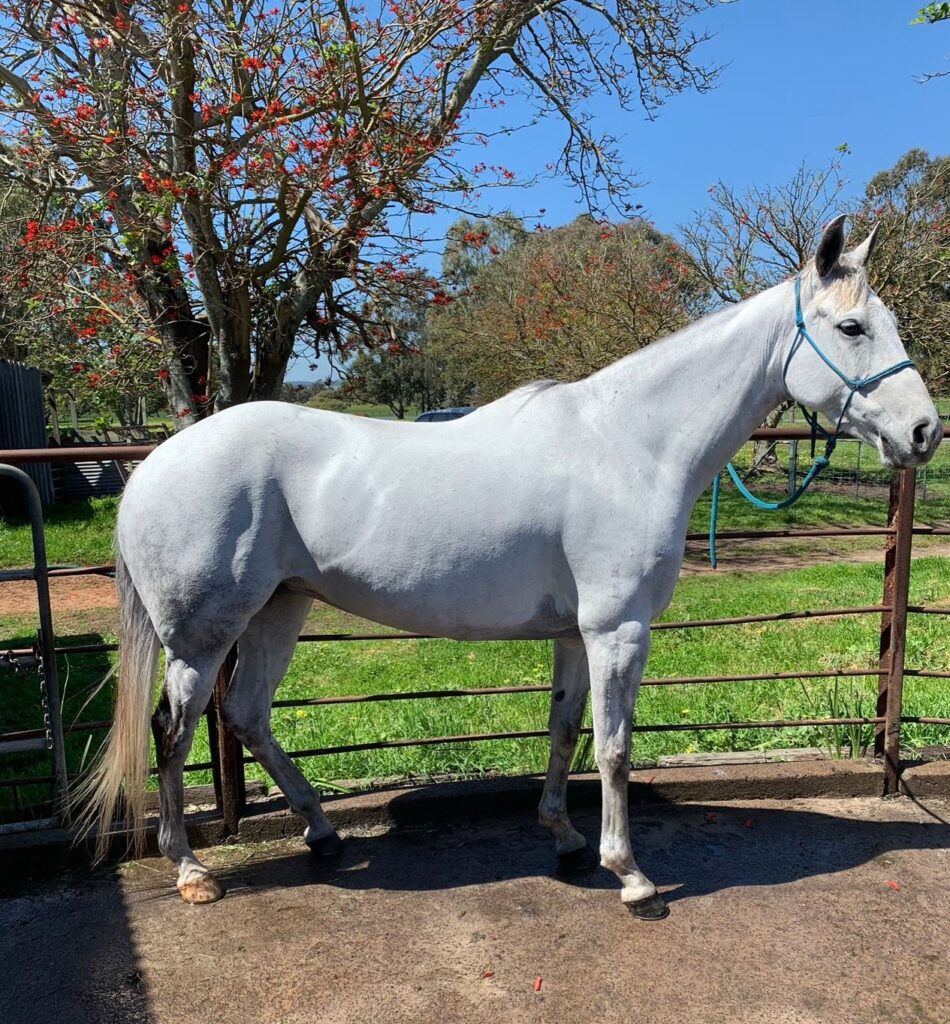
Why I Chose to feed T&R Might & Power Oat-Free Muesli
With my time away from Polocrosse after the 2012 Nationals, I spent those years studying, educating and qualifying myself as a Certified Sports Nutritionist, Personal Trainer, Strength & Conditioning Coach and achieving Certifications in many other fitness, health and lifestyle areas that have always been a passion and interest of mine.
The way we fuel our bodies is not so dissimilar to horses and when those horses are competing at an elite level they require more assistance than general paddock feed (grass, hay) in order to meet the demands of the sport and also help with the best possible recovery in a short period of time for their hard-working systems.
The 3 main building blocks being Protein, Fats and Fibre so when sourcing a feed for my horses these are the 3 key areas I looked at as a starting point. Polocrosse is exceptionally demanding on horses and the bulk of them go from being full time paddock horses during the week to travelling several hours to a carnival where they then spend most of the time in a much smaller yard set up. This can lead to loss of appetite in many, so the feed needs to be palatable and also nutrient dense so small feeds often can be the go-to routine. I trialled about 2-3 different options before finding the Oat-Free Muesli as a clear winner for my horses, it ticked all boxes in terms of quality content and percentages of the 3 main building blocks and also included the added benefits of being WA grown and produced so it’s great value for money and readily available.
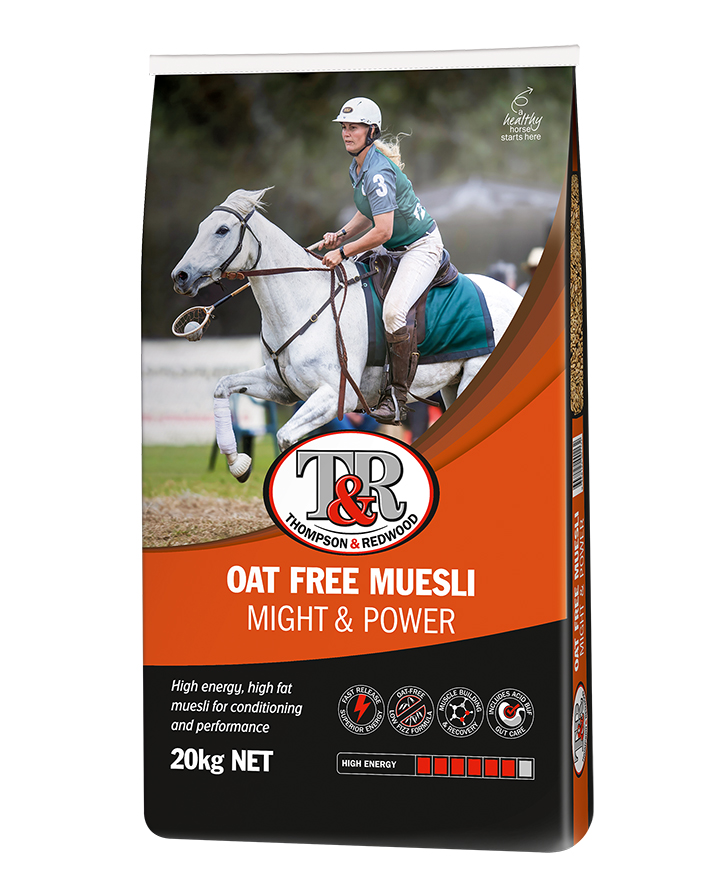



No Comments